10 Things We Learned From WWE SummerSlam 2011
Joey Ryan was shook!

Aug 14, 2018
So much for the vaunted "Summer of Punk". After turning the wrestling world on its ear with CM Punk's caustic Pipe Bomb promo, followed by a red-hot Money in the Bank pay-per-view, WWE put the cart before the horse and rushed Punk's return. After eight days as the untethered, unbeaten champion, Punk was back on the scene, ready to unify his belt with John Cena's interim belt come SummerSlam.
That's not to say anything of the show's quality. SummerSlam 2011 was, by and large, a very good show, a B+ sequel to an A+ Money in the Bank. But the warm feeling that existed when Punk left WWE and Chicago in his wake with the gold in hand was absent at SummerSlam. Instead, Kevin Nash, a cash-in finish for a heatless heel, and the feeling that the thrill was gone would cloud a show that was fine on technical merit.
Although Punk would reign later for 14 months, the magic that existed in his venomous speeches would never be regained. SummerSlam 2011 is a textbook dichotomy, in that you can enjoy the show for the wrestling that it provided, but detest what the event represented, and how all the good vibrations would peter out in short order.

You'd have hardly noticed there was still a brand extension in the summer of 2011, given how often SmackDown talents migrated over to Raw in order to fill out special three-hour broadcasts. The split by this time was as pointless and practical as a ski resort in Guatemala, and it wouldn't be around for a whole lot longer.
SummerSlam 2011 would mark the final pay-per-view of the original split, as on Monday, August 29 of that year, the brand extension was officially ended, after more than nine years. Raw was clearly the A-Show, while SmackDown would be treated as a dumping ground for story-less Friday night filler. Things would change nearly five years later when the brand split was re-instituted, but until then, SmackDown had little in the way of compelling, must-see TV.

Minus the cash-in match that took place at the end of the night, SummerSlam 2011 boasted only six scheduled matches, which would have tied it with 2010 for fewest of any SummerSlam. An additional match was slated for the show, but would take place as a dark match instead.
The original SummerSlam plans had Dolph Ziggler defending the United States title against Alex Riley, who was in the midst of a brief but well-received run as a fiery babyface, thanks to a well-executed turn on The Miz. Reportedly, Ziggler was working through a painful abdominal pull at the time, but it's not clear if that's why the match was pulled from the main card. Curiously, when the match ran dark, it was a non-title affair, with Ziggler winning anyway.

There was another subtraction from the SummerSlam card, but this wasn't a match - it was an announcer. Originally, the event was to have seen a three-man commentary booth featuring Michael Cole (still an obnoxious heel), Jerry Lawler, and Jim Ross. Ross was told he'd be working the show, and prepared accordingly for the event.
According to The Wrestling Observer, it wasn't until just before they went on air that Ross was informed he was being pulled in favour of Booker T. The explanation was that they wanted a "SmackDown presence" on the show, and decided last minute to go with Booker. The Observer speculates that this was all a rib on McMahon's part to screw with JR, as since the brand split was in its death throes, there was no reason for a brand to have representation.

The opener of SummerSlam was a rather fast-paced and enjoyable six-man tag pitting Rey Mysterio, John Morrison, and Kofi Kingston against The Miz, R-Truth, and Alberto Del Rio. The pay-per-view would be the last one for Mysterio for some time, as the man who held the interim WWE Championship just weeks earlier was dealing with a serious medical issue.
Mysterio had injured his knee in a house show match with Del Rio sometime the week before, but managed to make it through both SummerSlam, as well as Raw the next night (also against Del Rio), before going off to have surgery. The damage was in Mysterio's ACL, and he would ultimately miss nearly a year of action, not returning until July of 2012.
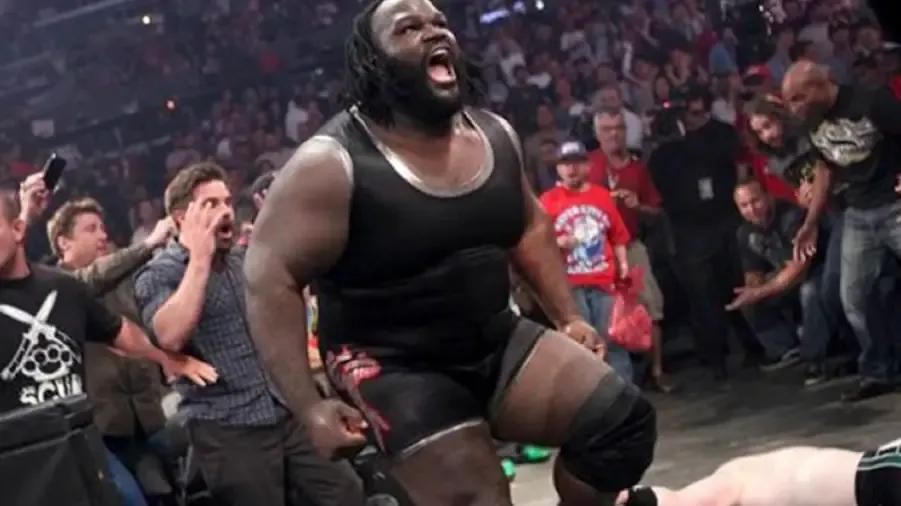
In the undercard, Mark Henry would defeat Sheamus via countout, but not in normal countout fashion. The World's Strongest Man drove Sheamus through the ringside barricade with a running slam, causing the sort of OMG! moment that you would see in WWE's video games. And who better to accentuate said OMG! moment than a wrestler making an OMG! face?
A local indy talent of considerable renown was seated in the front row near the eventual accident site, planted there to react with abject horror at Henry putting Sheamus through the wall. The wrestler in question was none other than Joey Ryan, who did what he'd call a "Home Alone" sell to the spot, something he claims popped the boys in the back, per what CM Punk told him. The next night at Raw, Ryan received a tryout match with Bo Dallas, but was not hired.
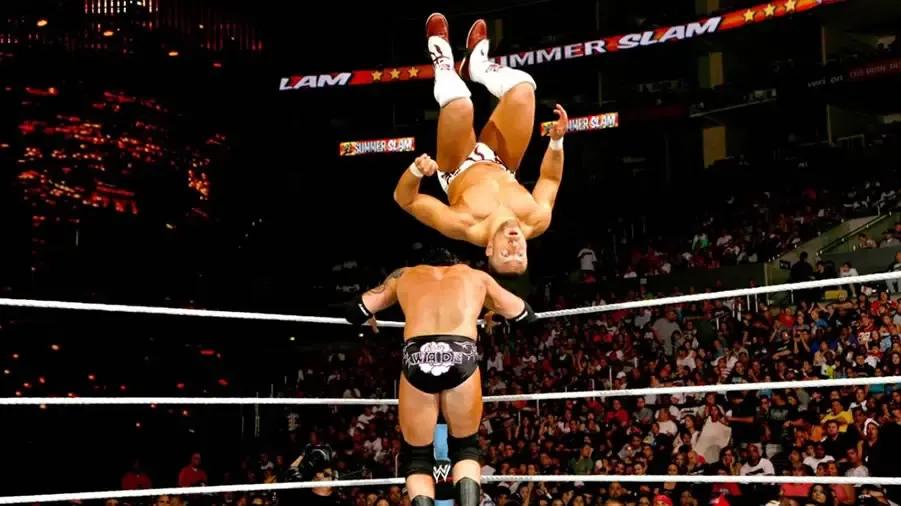
In what ranks among the most underrated SummerSlam matches ever, Money in the Bank briefcase holder Daniel Bryan lost to Wade Barrett in a hard-hitting, no-BS battle between one-time Nexus allies. Both men looked suitably tough in the bone-bruising brawl, and it was great to see Bryan. That's because he was apparently allergic to pay-per-views for some time.
The match marked the first time Bryan had a singles match on a WWE pay-per-view broadcast since wrestling Ted DiBiase at the 2010 Survivor Series. In the eight pay-per-views between that event and this SummerSlam, Bryan took part in four dark matches, sat out of two shows altogether, and wrestled in multi-man matches at the other two (Royal Rumble and Money in the Bank 2011). And yet, they still thought to hand him the briefcase that summer.
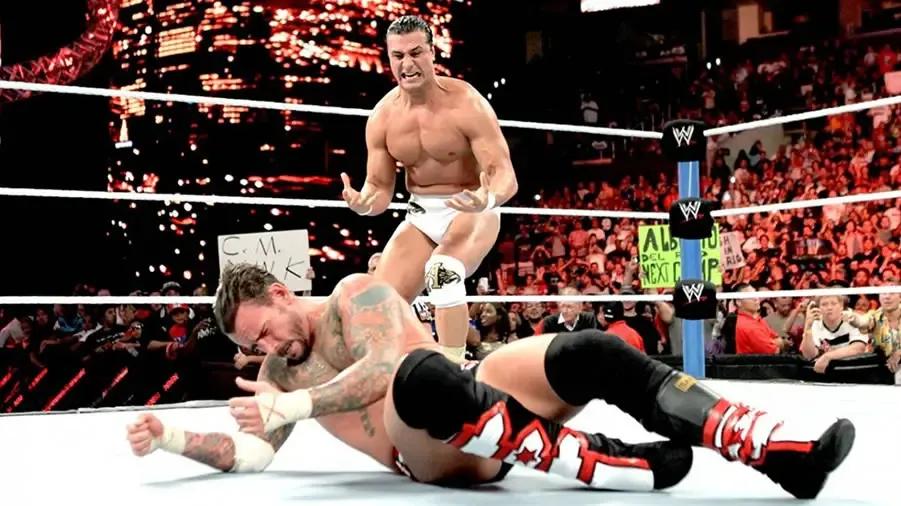
SummerSlam 2011 came to an end with Alberto Del Rio cashing in his Money in the Bank briefcase on a knackered CM Punk (who had just been jumped by Kevin Nash, in an angle that really went nowhere). One year after his debut match on the WWE roster, Del Rio was champion, although plans were to make him the titleholder far sooner.
According to Dave Meltzer, Del Rio was originally planned to become World Heavyweight Champion at the TLC 2010 pay-per-view, but WWE chose to hold off on his crowning moment. He was then set to topple Edge at WrestleMania XXVII for the same belt, but WWE once more decided to wait on putting Del Rio over as champ. Finally, eight months after it was originally supposed to happen, Del Rio achieved what he had claimed to be his destiny - except it would be the opposite belt that he'd previously pursued.
The decision to take the WWE Championship off of the red-hot Punk was controversial, but that's what WWE chose to do, and there's little doubt that the ongoing mojo dissipated quickly after. Del Rio's successful cash-in made for an interesting tidbit unto itself, in regards to that particular belt at SummerSlam.
Not counting Punk's unification win over Cena (since there was no title change), Del Rio's win over Punk marked the first time that the WWE Championship changed hands at SummerSlam in seven years, when Brock Lesnar defeated The Rock. Each SummerSlam from 2003 through 2010 saw the gold remain with its respective champions, which is quite surprising unto itself. Also fascinating is that Del Rio became just the fourth man to win the belt at a SummerSlam, following Lesnar, Mankind, and Bret Hart.
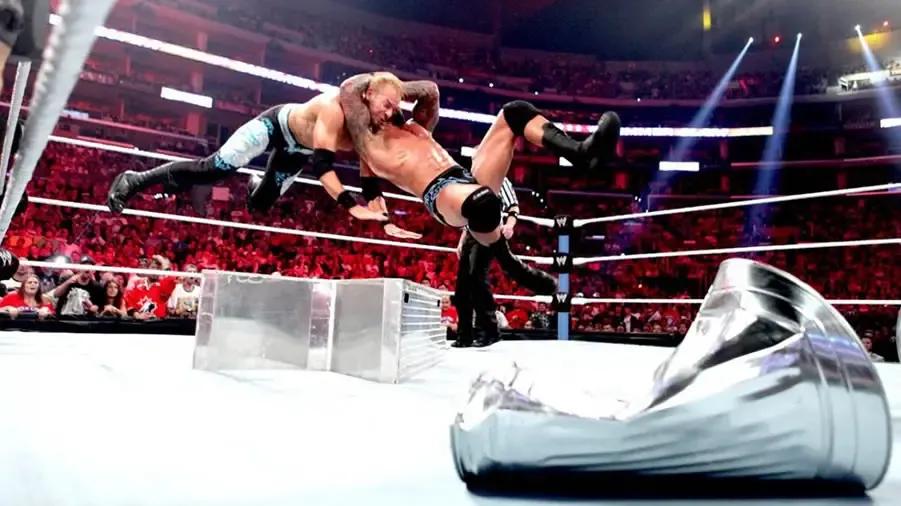
On a night where a WWE Championship unification was hashed out, and the champion subsequently dropped the belt to an intruding opponent, there was also another World Title change. In what may have been the best match of his career, Randy Orton captured the World Heavyweight Title from Christian in an anything-goes match.
This made SummerSlam 2011 the only one of WWE's August pay-per-views to see two different World titles change hands in the same night. Whether it was the WCW title (2001), World Heavyweight (2003-13), or Universal belt (2016-present), there would be years in which one belt changed hands, but not the other. And this doesn't count Brock Lesnar taking two belts from John Cena at the 2014 event - they were now sharing the same championship lineage, instead of two separate titles.
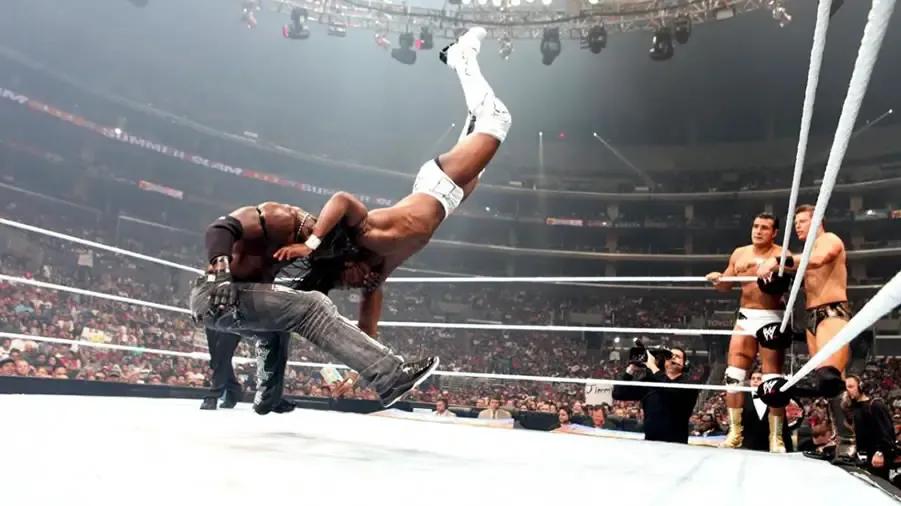
In the days before WWE Network, your choices for watching a pay-per-view in your own home boiled down to either legally purchasing it, or illegally streaming it. By 2011, the second option had become quite popular for people who didn't feel like digging into their financial reserve. Coupled with the general decline in interest in the WWE product, and buyrates for shows not called WrestleMania saw serious dropoffs.
In the case of SummerSlam 2011, the show did 296,000 buys, making it the least bought SummerSlam since the 1997 show that did just 235,000 buys. This was also the first SummerSlam in that 14 year time period to do under 300,000 buys. Some might try to attribute this low number to WWE rushing the "Summer of Punk", but really, numbers were going to be staggeringly low no matter what, given the period.